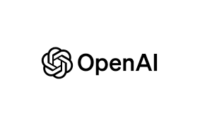Two former OpenAI researchers, Daniel Kokotajlo and William Saunders, have voiced their disappointment and lack of surprise over OpenAI’s recent opposition to California Senate Bill 1047, legislation designed to prevent potential disasters involving artificial intelligence (AI). The bill, which aims to establish stricter safety measures and oversight for AI development, has become a contentious issue in the tech community, with differing opinions on how best to regulate this rapidly evolving technology.
Kokotajlo and Saunders, who resigned from OpenAI earlier this year, have been vocal about their concerns regarding the company’s approach to AI safety. Their departure was driven by what they described as a “reckless” race for dominance in the AI industry. Both researchers had previously warned that OpenAI was prioritizing rapid development and market leadership over essential safety protocols and long-term considerations.
Their letter, shared with Politico and addressed to California Governor Gavin Newsom, underscores their frustration with OpenAI’s stance. They point out the apparent contradiction in OpenAI CEO Sam Altman’s public calls for AI regulation, only to oppose concrete regulatory efforts when they come to fruition.
A Call for Responsible AI Development
In their letter, Kokotajlo and Saunders express a desire for OpenAI to adhere more closely to its original mission statement, which emphasized the safe and ethical development of artificial general intelligence (AGI). “With appropriate regulation,” they write, “we hope OpenAI may yet live up to its mission statement of building AGI safely.”
The former employees argue that without rigorous oversight, the pursuit of advanced AI technologies could lead to unintended consequences, potentially exacerbating risks that could have been mitigated with thoughtful regulation. They view SB 1047 as a critical step in ensuring that AI development proceeds in a manner that prioritizes safety and public interest over corporate gains.
Mixed Reactions Within the AI Community
While OpenAI has opposed SB 1047, citing concerns that the bill could stifle innovation and place undue burdens on AI developers, other key players in the AI space have expressed varying degrees of support. Notably, OpenAI’s competitor, Anthropic, has taken a more nuanced stance. Although not fully endorsing the bill, Anthropic has acknowledged the importance of regulation and worked with lawmakers to suggest amendments that address some of the industry’s concerns.
Anthropic CEO Dario Amodei recently wrote to Governor Newsom, stating that the current version of SB 1047 has been improved through these amendments and that “the benefits likely outweigh its costs.” This statement highlights the complex balance between fostering innovation and ensuring that AI technologies are developed and deployed responsibly.
The Broader Implications of AI Regulation
The debate over SB 1047 reflects broader concerns within the tech industry and beyond about the role of regulation in guiding the development of powerful new technologies. As AI continues to advance, the potential for both positive and negative impacts grows. Proponents of the bill argue that without proactive measures, society could face significant risks, ranging from economic disruption to ethical dilemmas and even existential threats.
Opponents, including OpenAI, caution that overly restrictive regulations could slow progress and hinder the ability of companies to compete on the global stage. They argue that innovation, particularly in a field as dynamic as AI, requires flexibility and that heavy-handed regulation could have unintended consequences of its own.
Conclusion: A Critical Moment for AI Governance
As California lawmakers and industry leaders continue to debate SB 1047, the outcome will likely have far-reaching implications for the future of AI regulation, both in the United States and globally. The voices of former insiders like Kokotajlo and Saunders add weight to the argument that more stringent oversight is necessary to ensure that AI technologies are developed in a way that serves the public good.
The controversy surrounding SB 1047 also underscores the broader challenge of balancing innovation with responsibility—a challenge that will only grow as AI becomes increasingly integrated into every aspect of society. As the AI industry grapples with these issues, the decisions made in the coming months could shape the trajectory of AI development for years to come.
See also: AI Sales Rep Startups Are Booming—But Why Are VCs Wary?


















